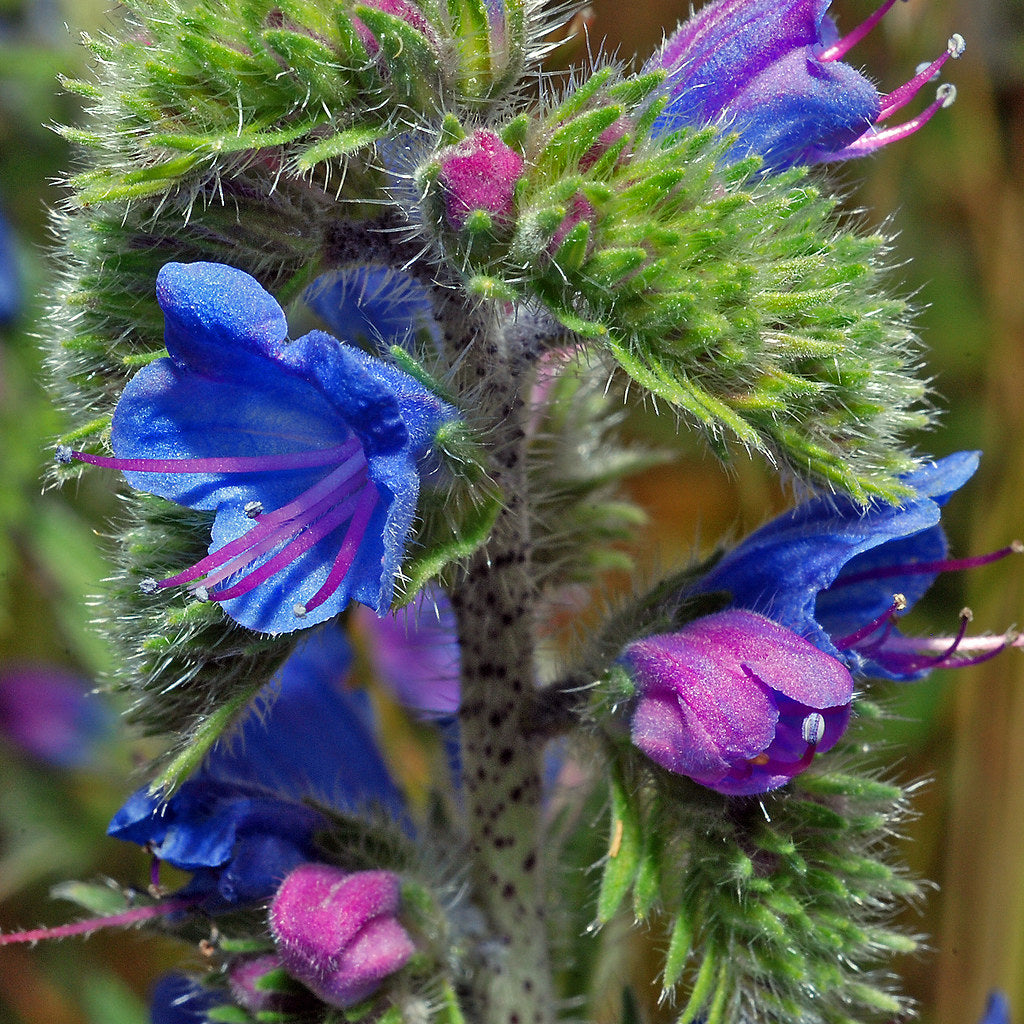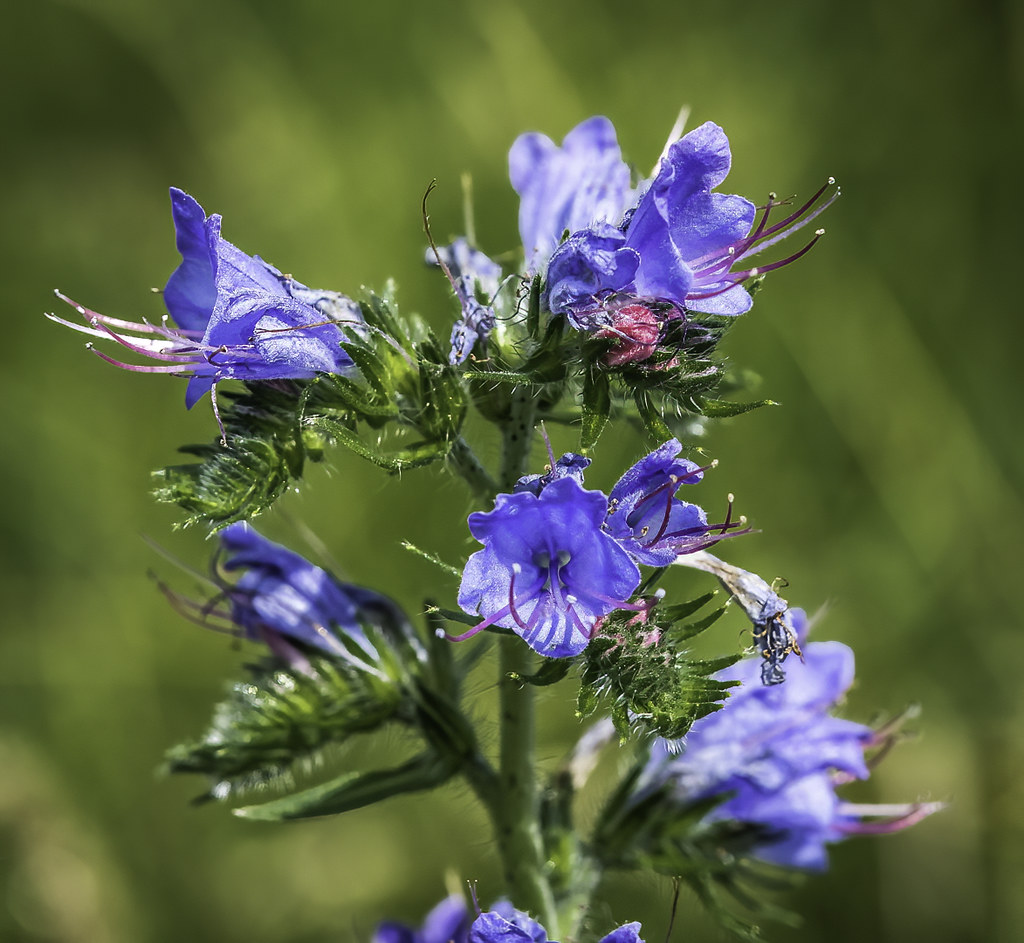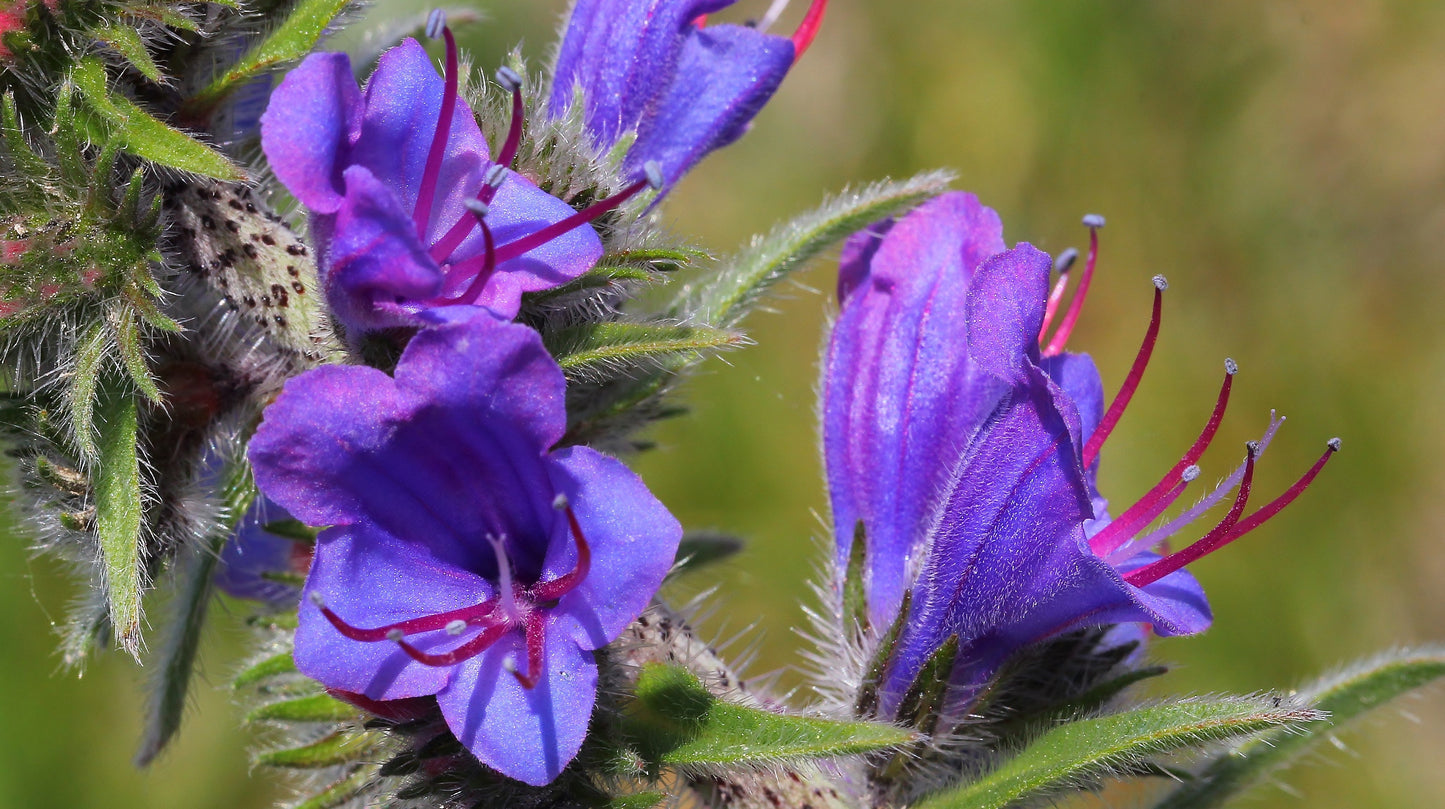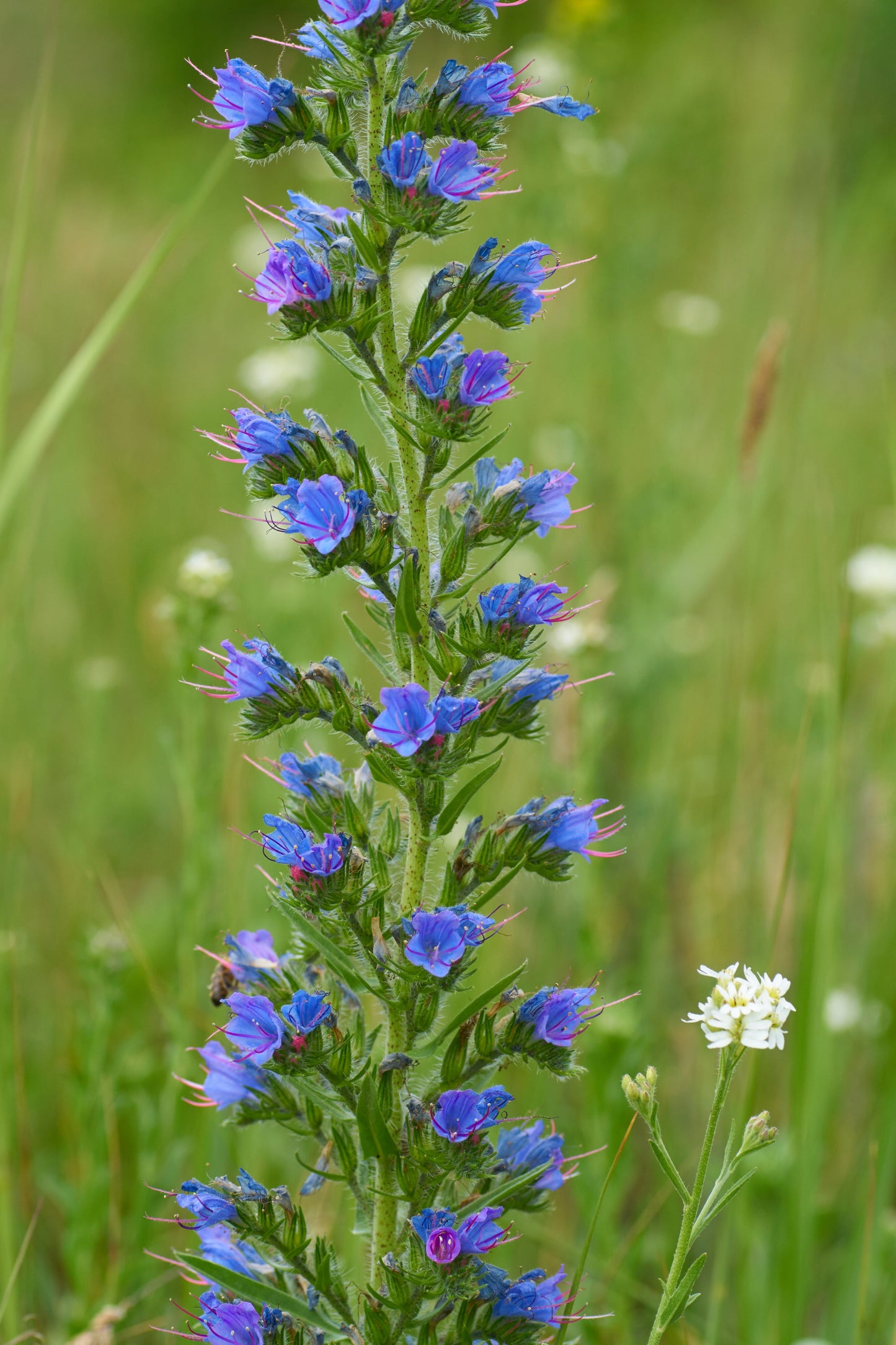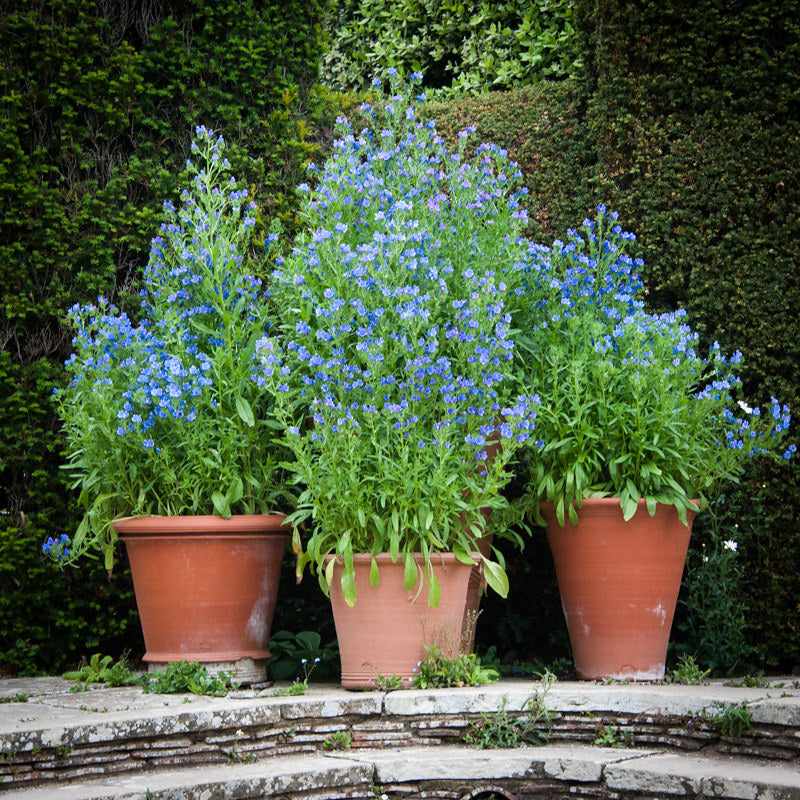1
/
of
6
Floridaseeds
Viper's Bugloss Echium vulgare 100 Seeds USA Company
Viper's Bugloss Echium vulgare 100 Seeds USA Company
Regular price
$10.99 USD
Regular price
$14.99 USD
Sale price
$10.99 USD
Unit price
/
per
Shipping calculated at checkout.
Couldn't load pickup availability
Viper’s Bugloss is a very odd name for a very pretty wildflower. The roots of this plant have been used to treat snake or viper bites, hence the common name. Echium vulgare is also called blueweed for its stunning, bright blue flowers. The flowers are on a tall, leafy stalk that appears on the plant in the spring and summer. They are bell-shaped with 5 corolla lobes. The flowers are rose-pink when they open and then change to blue as they mature. The stamens don’t change color so the mature flowers are blue with 5 long, magenta-pink stamens. It is a biennial and it is in the borage family, the Boraginaceae. The flowers are rich in nectar and attract a variety of insects. E. vulgare is native to Europe and Asia. It is widely grown in temperate regions as a garden plant. Hardy in zones 3-8.
The viper's bugloss is not sold or shipped to Washington State.
Growing Instructions for the Viper’s Bugloss
Planting viper’s bugloss is just as easy as growing it. Just wait until all danger of frost has passed in the spring, and plant viper’s bugloss seeds directly into soil. Just sprinkle them on the ground, and cover with a very light, thin layer of fine soil, chalk, or sand, and you should be seeing blooms within a few short months. The type of soil doesn’t even matter that much, as viper’s bugloss will basically grow in anything. The plant prefers a chalky soil, but it will make do with what it’s given. Drop a few seeds in the dirt every few weeks, and enjoy the blossoms while providing much-needed nutrition in the form of pollen and nectar to your local bee population all summer long. You can also plant viper’s bugloss seeds in the fall for springtime blooms.
The viper's bugloss is not sold or shipped to Washington State.
Growing Instructions for the Viper’s Bugloss
Planting viper’s bugloss is just as easy as growing it. Just wait until all danger of frost has passed in the spring, and plant viper’s bugloss seeds directly into soil. Just sprinkle them on the ground, and cover with a very light, thin layer of fine soil, chalk, or sand, and you should be seeing blooms within a few short months. The type of soil doesn’t even matter that much, as viper’s bugloss will basically grow in anything. The plant prefers a chalky soil, but it will make do with what it’s given. Drop a few seeds in the dirt every few weeks, and enjoy the blossoms while providing much-needed nutrition in the form of pollen and nectar to your local bee population all summer long. You can also plant viper’s bugloss seeds in the fall for springtime blooms.
Materials
Materials
Shipping & Returns
Shipping & Returns
Dimensions
Dimensions
Care Instructions
Care Instructions
Share
